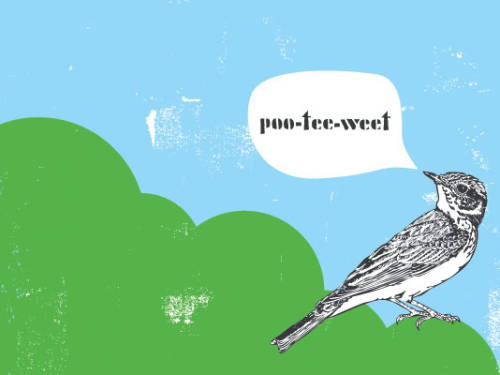

In another brilliant instance, Vonnegut takes advantage of Billy’s participation in a radio talk-show to include snippets of critical discussion around the death of the novel - one critic says its only function in modern society might be “to describe blowjobs artistically”. In many places, Vonnegut inserts it so naturally that you can miss it - “speaking of people from Poland”, for example, is used to seamlessly transition from a barbershop quartet singing vaguely racist songs on a chartered plane to the brutal reality of Dresden several years earlier. Whereas in other self-aware texts the device can become tiresome, in Slaughterhouse-Five it’s anything but. Slaughterhouse-Five often describes events with a warm, sympathetic, almost naive humor - it feels like the malt syrup the prisoners surreptitiously spooned must have tasted. And I’m not just referring to the dark, mysterious humor that surrounds imagery like the coffin-shaped wagon or the idea of Valencia Pilgrim dying of carbon monoxide poisoning only after escaping death in a car crash, because she was rushing to get to the hospitalized Billy. Meanwhile, that a novel about war and death - and their grim inevitability - can be this funny, is awesome. Vonnegut is not providing answers or exits to any of this he’s not allowing anyone to sidestep responsibility - like the birds of Dresden with their “Poo-tee-weet?”, he is interrogating. The point is it’s not just a single technology like the atomic bomb that is to blame, but the general machinery and industry of war that functions first by dehumanizing and then by destroying this which no longer seems human. On the other hand, it’s clear that technologies of destruction play a big role in the killing. In one sense, the message is “bombs don’t kill people, people do” - people who make abstractions and use other lives as means to their ends, such as ‘ending the war quickly’. The message this book sends about weapons of destruction seems crucial, and just as necessary today as it was when the book was published.
SLAUGHTERHOUSE 5 POO TEE WEET FREE
We are not from Tralfamadore, we cannot move around in the fourth dimension or experience all moments simultaneously, and so even if free will is just an illusion we on Earth have to reckon with its consequences.

Of course, humans do live as if free will were real. Rather than ignoring the horrible moments, as the inhabitants of Tralfamadore prescribe, Vonnegut willingly focuses in on them. War is going to happen anyways, human brutality is inevitable, but attempts can be made to bear witness to it. If, as Tralfamadorians say, “all time is all time” and there is no possibility to change the inherent ‘structure’ of a given moment, what is the point of writing any anti-war novel? In a sense, there is no point. Recounting its plot is complicated, because there is no clear time at which the narrative starts or at which it ends - in this way, the book embodies the simultaneous conception of time held by the Tralfamadorians, the benevolent (if condescending) aliens who kidnap Billy Pilgrim and hold him for some time in a zoo on their home planet. It also develops notions of death, time, and war that go far beyond that specific massacre. Slaughterhouse-Five chronicles the firebombing of Dresden, through the perspectives of two equally important protagonists: Vonnegut himself, and the time-travelling Billy Pilgrim.

The book itself, however, far exceeds this tongue-in-cheek summary. Sound like something you’d want to read? In this supreme example of post-modern self-consciousness, Vonnegut is ironically summing up this supreme specimen of an anti-war 20th century novel. “There are almost no characters in this story, and almost no dramatic confrontations, because most of the people in it are so sick and so much the listless playthings of enormous forces”


 0 kommentar(er)
0 kommentar(er)
